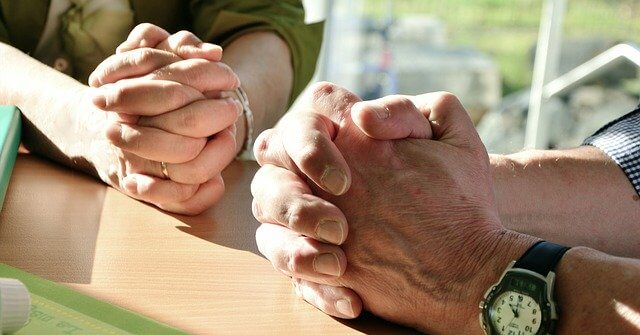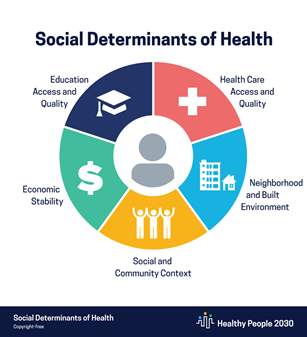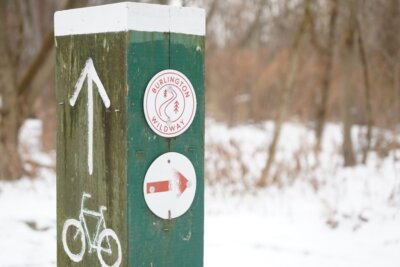We will get through this: stay connected, be a helper, find comfort
“No one had any doubt that the bombers would come,” writes Erik Larson in The Splendid and the Vile (A Saga of Churchill, Family, and Defiance During the Blitz). “Britain’s military leaders saw the world through the lens of the empire’s experience in the previous war, the Great War … Since then, the bombs had grown bigger and deadlier, and more cunning, with time delays and modifications that made them shriek as they descended.”
On November 10, 1932, then deputy prime minister of Great Britain Stanley Baldwin gave a forecast of what was to come: “I think it is well for the man in the street to realize that there is no power on earth that can protect him from being bombed. Whatever people may tell him, the bomber will always get though.”
“The atmosphere is something more than anx iety,” wrote Harold Nicolson in his diary on May 7, 1940. “It is one of actual fear.” He and his wife (the writer Vita Sackville-West) had made an agreement to commit suicide rather than be captured by Germans. “Oh my dear, my dearest, that we should come to this!” Ms. Sackville-West wrote her husband on May 28.
iety,” wrote Harold Nicolson in his diary on May 7, 1940. “It is one of actual fear.” He and his wife (the writer Vita Sackville-West) had made an agreement to commit suicide rather than be captured by Germans. “Oh my dear, my dearest, that we should come to this!” Ms. Sackville-West wrote her husband on May 28.
Larson wondered how anyone could have endured the German aerial assault on London in 1940-1941—“fifty-seven consecutive nights of bombing, followed by an intensifying series of nighttime raids over the next six months.” How did Churchill and his family and friends stand it?
Larson set about finding out what it was like, and soon came to realize “that it is one thing to say, ‘Carry on,’ quite another to do it.” His book goes into fine detail about how Churchill and others of his time went about surviving on a daily basis—“the dark moments and the light, the romantic entanglements and debacles, the sorrows and laughter, and the odd little episodes that reveal how life was really lived under Hitler’s tempest of steel.”
This is the book I was reading (am still reading) when I was asked to write a piece about finding comfort and peace in the current environment with this dastardly pointy-covered virus going around and felling humans right and left, bringing normal daily life to a screeching, moaning halt, and trapping us home to wonder when it’s all going to go away or when someone will come up with a vaccine or medicine to mitigate the wreckage and turmoil. I couldn’t help but make the connection. London in 1940 and us today. Fear. Anxiety. The unknown. A powerful, unseen enemy. The mystery of who will escape and who will fall. The pervading sense of powerlessness. Anxiety.
I don’t know about you but I’m not feeling so well myself. I have a cold that is unlikely the dreaded virus but it’s hard not to worry. I’m shut into a lovely house with fields and woods nearby to walk in; I’m playing a lot of games and trying to do some work from afar; two of my kids are here, along with a couple of rapidly shedding dogs (who can’t believe their good fortune that we are not rushing out in cars every five minutes and leaving them behind) and a cat who seems calmly indifferent to much. How about you? Are you home? Are you alone? Are you feeling okay?
“Keep calm and carry on,” goes the slogan you see everywhere these days. But this is really weird. It’s hard to stay calm, right? It’s unsettling. Occasionally terrifying. What are you doing to stay sane? Connected? Healthy?
I have found some things that have helped me. One is to be a part of the solution, not the problem. Maybe I could have evaded this Enemy Number One by taking my annual pilgrimage to see my parents in paradisiacal Florida, but for my own health and the good of the public in general and in the best interest of my elderly parents, I canceled.
I am not gathering anywhere, except outside, at a good distance from others, and particularly now that I have cold symptoms, I’m staying home. I have stocked my pantry pretty well, but I am not binge-buying or hoarding. I’m trying to play by the rules that health experts say will maximize public health, and not make things worse. There is some peace of mind in that. I read somewhere that survivors of past disasters have later had a lot of regrets about how they behaved during the crisis, when they reacted out of fear, not love. They have shame about that. I don’t want to live with that. I am trying to be generous and not a dick.
I am staying connected. I haven’t figured out Zoom yet and am not a big fan of FaceTiming, but I make and take a lot of calls during the day. I check up on people. This helps me feel less isolated and anxious. I have also learned: self-centered fear is not good for me. It is much better for me to get out of myself and reach out, do some work, pray for the world, and share than sit around taking my temperature every ten minutes and worrying about my symptoms and how long this pandemic thing will last and who I might lose in its wake.
It is important for me to be one of the “helpers,” in whatever ways I can. Games are good too. My daughter just achieved world domination in a two-day game of Risk, and unfortunate as that was for my son and me (we are not speaking to her), it took my mind off things and was fun. Playing with the dogs has been helpful, too. Our house is covered in hair. Did I mention I cancelled the cleaners?
I read somewhere that we could also treat this time as a kind of Sabbath. Slowing down. Not going anywhere. Getting outside in nature. Saying no to social opportunities. Eating at home. Keeping things simple. It’s a good time to meditate, practice some yoga, pray. I’m trying all that, too. It’s sporadic, but hey.
A friend of mine recently asked me why we should pray when it doesn’t seem to prevent bad things from happening. Another friend of mine told me about a man he knew who stopped believing in God when he observed both opposing football teams praying for victory. It’s hard to explain but I don’t think prayer prevents bad things from happening necessarily and it doesn’t mean you always get to win, but I do know that it helps connect us to one another and to a higher power, which might (I heard recently) be defined (if you have problems with the idea of a supreme being) as “a life force that I can cooperate with.” I love that. I think prayer helps me stay connected to eternity, the never-ending story, the wider universe that is our forever and ever home.
Here are two prayers I have found that I think are helpful in this time. The first is Psalm 93 (translated by Stephen Mitchell):
God acts within every moment
and creates the world with each breath.
God speaks from the center of the universe,
in the silence beyond all thought.
Mightier than the crash of a thunderstorm,
mightier than the roar of the sea,
is God’s voice silently speaking
in the depths of the listening heart.
And here is another one that has been making the rounds:
May we who are merely inconvenienced remember those whose lives are at stake.
May we who have no risk factors remember those most vulnerable.
May we who have the luxury of working from home remember those who must choose between preserving their health or making their rent.
May we who have the flexibility to care for our children when their schools close remember those who have no options.
Winston Churchill wrote in his eulogy for Neville Chamberlain, “It is not given to human beings—happily for them, for otherwise life would be intolerable—to foresee or to predict to a large extent the unfolding course of events.”
True enough. But please know that I wish you all the very best. I wish you love, health, and peace for your soul. You are not alone. We are not alone. And we will get through this. This too shall pass. And it is amazing and kind of inspiring, really, to ponder the fact that this virus affects all humans, all over the globe—all races, colors, political affinities, and demographics. Maybe if nothing else it will help us see that it’s time we really work together to keep us all safe and well, as one people, one planet.
Human beings have been through worse, and we will get through this, too.
I just opened to a poem by Rumi. Here is the tail end of it. A good place to end, for now.
‘Where is catastrophe?’ In the street of Your love. ‘How do you travel there?’ He asked. ‘With integrity,’ I said. Silence. If I were to utter more, you would be completely gone, left without a door or roof.
Related Stories
Popular Stories
If you enjoy The Charlotte News, please consider making a donation. Your gift will help us produce more stories like this. The majority of our budget comes from charitable contributions. Your gift helps sustain The Charlotte News, keeping it a free service for everyone in town. Thank you.
Andrew Zehner, Board Chair








